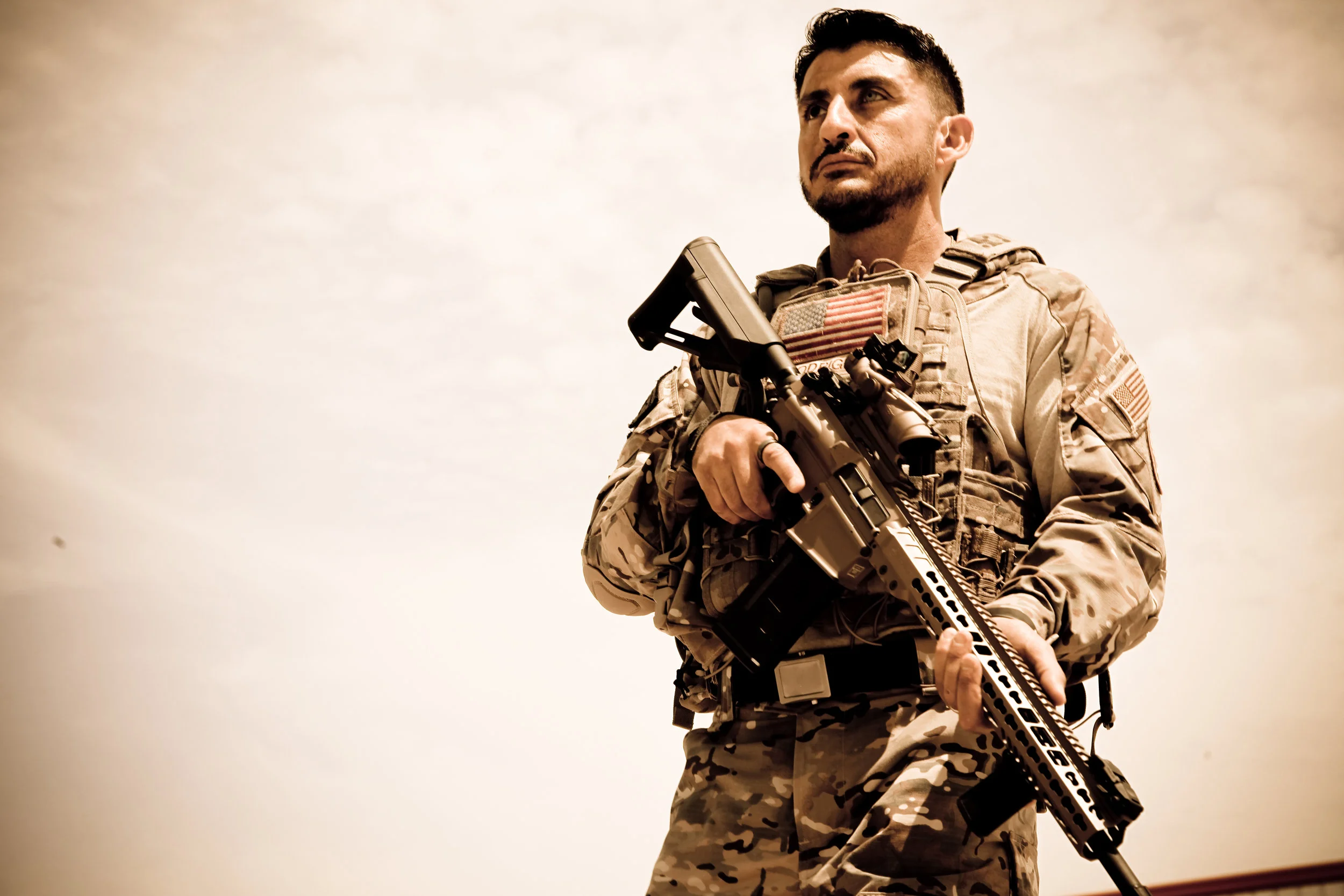Links for the episode are at the bottom of the page!!
GRP 49- We have a very special episode for you guys today. Co-hosting this episode with me is Chantel Taylor. Chantel is a British Army veteran where she served for 12 years as a Combat Medic with multiple deployments and was involved in some heavy fighting in southern Afghanistan.
Our special guest for this episode is Navy SEAL veteran Ray Mendoza, and Army Ranger Mike Baumgarten. Ray served for over 16 years 13 of those were as a SEAL, and Mike served for 10 years all with Ranger Regiment and has 10 combat deployments. Ray and Mike are producers for a show airing this veteran’s day on the History channel called "The Warfighters". Since 2001, the Army Rangers, the Navy Seals and the Green Berets have been fighting the War on Terror. It remains the longest war in American history. For the past 15 years, they have been at the tip of the spear, honorably risking their lives for their country and one another. “The Warfighters” is a harrowing and impactful portrayal of the triumphs and sacrifices the United States Special Operations Forces have endured on the battlefields of Afghanistan and Iraq.
We talk their careers in the Army and Navy respectively, as well as PTSD and issues facing veterans. Below is an excerpt.
John: One interesting aspect of veteran suicide and PTS is this isn't something new. There's evidence of this existing throughout almost every conflict in the history of the world. In WW2 they called it shell shock, in Vietnam, they had a different term for it. With this age of connectivity and with so many guys coming home from such a prolonged period of warfighting. The reality of it is going to seep into everyday life for civilians. As a society, we ask these questions of ourselves. How can we approach this? I think now with the culmination of everything that's happened we are closer to cracking this nut than ever before.
Mike: There are more resources devoted to it. The understanding has been expanded. In the Civil War, they called it Lonely heart syndrome. Understanding that it's not just a feeling. It's a physical change to that person's brain. When you go to war you need to understanding the effects. If there was a greater understanding of the price I feel like there would be more deliberation into putting America's sons and daughters into harm's way without realizing that you need to have the infrastructure to take care of them when they get back.
Music provided by Caspian:
Click the buttons below to access the episode:






